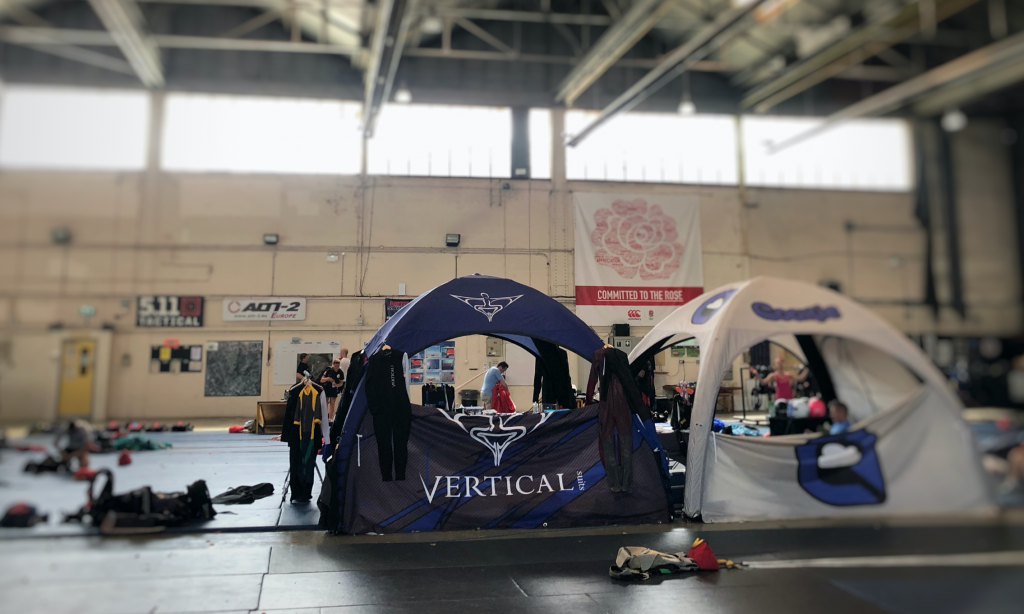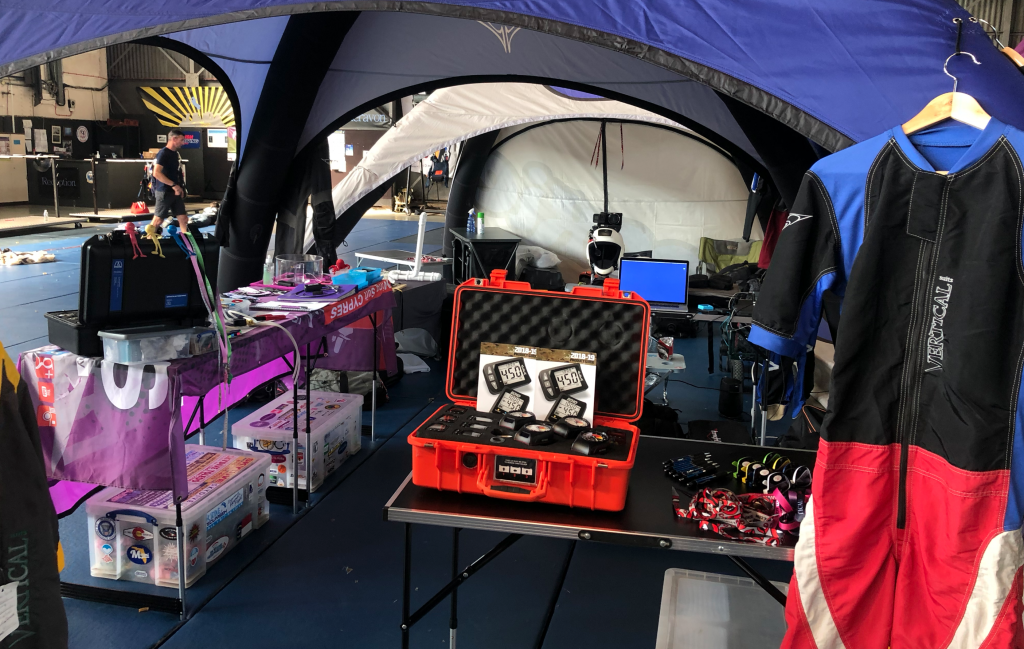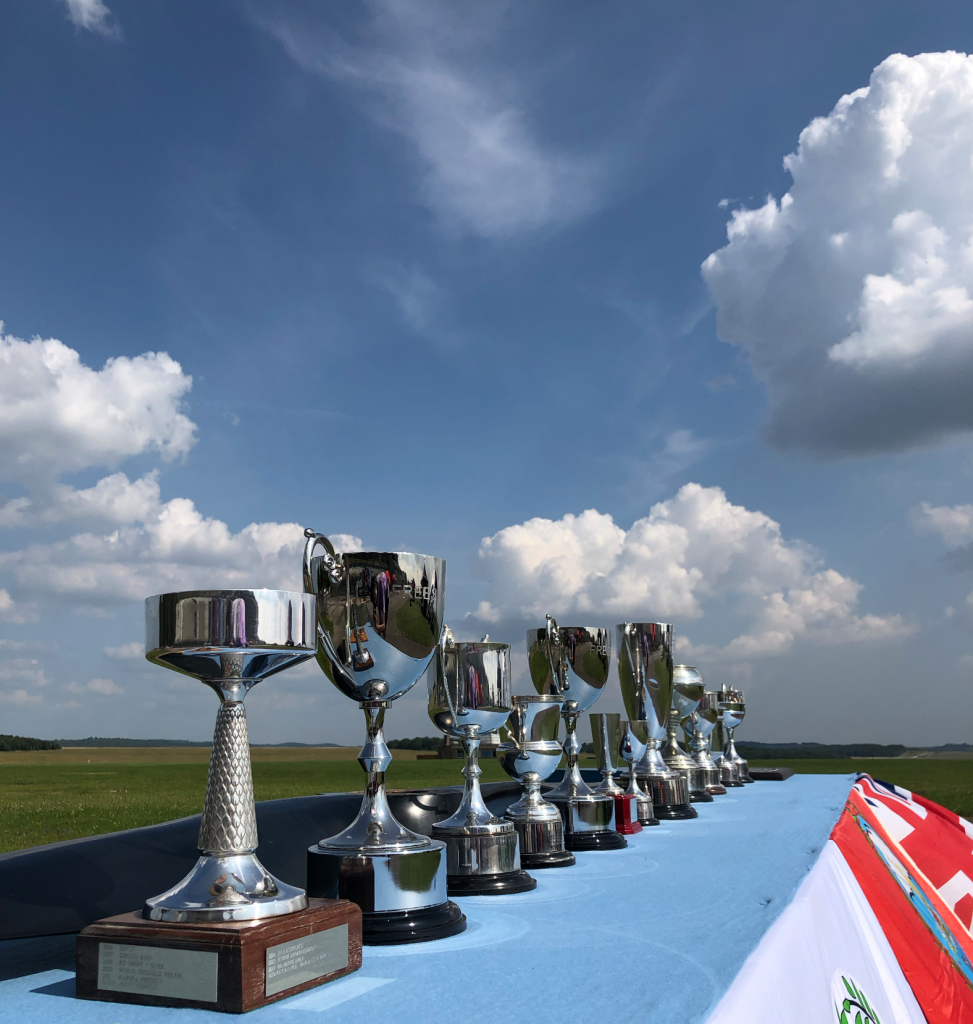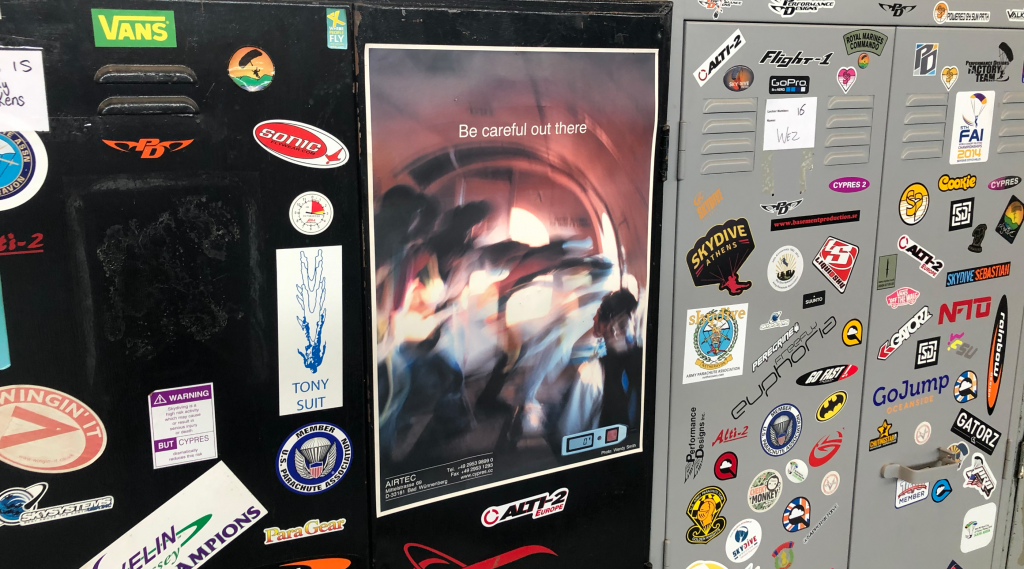The skill level required to properly represent in established skydiving competitions is very high. There are no shortcuts for developing either the physical or mental game, and support is hard to come by for almost everyone. You have to really want to do it because competing at even the highest level means you will be paying for the privilege to do so. Even the fanciest appearing extreme sports teams that outwardly appear to be globe-trotting, magic-making, fully-funded adventurers – are perhaps not quite what they seem. Everybody has to work, coaching in some form or other, working in commercial skydiving, maybe supporting themselves with a real-world job. This is both a good thing and a bad thing. It would be amazing if skydiving, and airsports in general, could support sufficiently hard-working and talented people to solely pursue what lies out past the edges of current understanding. Yet approaching things from the other direction this would possibly undermine one of the things that makes smaller sports very special for those involved – a constant connection to and interaction with the best of the best.

The military does it differently. They got money. Observing a military skydiving championship as an experienced civilian gives you an uncanny-valley sensation, whereby all the required elements are present and correct – but it just feels kind of strange. It could be the way that the majority of participants have entered into many categories, which is very different from your own time in a professional team grinding incredibly hard to maybe be good enough at a single thing. It could be that ever-present dividing line, the in-or-out vibe of army people which by necessity allows them collectively to get army things done right, but traps them in a bubble of ‘our way or the wrong way’.

It could be the trophies. It is probably the trophies. Having only just enough teams to run a discipline is a normalised part of competitive skydiving, and entering something because you are guaranteed a medal is indeed silly, but it is also often a valuable contribution and official validation, possibly a jolly good time, and definitely the best way to properly learn the rules. Yet when the trophy table of a single medium-sized country dwarfs that of the actual sporting world championships, one gets that feeling again. Every part of what is happening is correct, but taken all together it feels like someone went back in time in a Delorean, changed one little detail – and now you are in a slightly altered present day.

This is not designed as cynicism though. The strong bond between military and civilian skydiving benefits everyone, and wherever possible we do what we can to help one another out – be it the career sporties teaching skydiving skills to the many and varied parachuting units around the globe, the dropzones that are extended and strengthened with institutional resources, or the funded demo teams with a unique ability to convey the thrill of skydiving to public audiences. Wherever possible we should seek to cross over more. This particular army meet would benefit from more involvement from experienced sport skydivers, and in turn, the UK scene could really use the number of keen and willing participants from our armed forces to broaden and develop our overall competitive ability.

